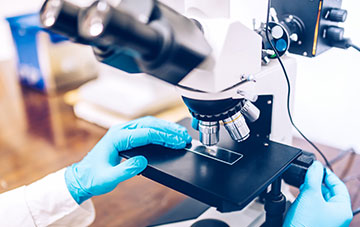Marine Biology program
- Home
- Ras Sudr
- Field of Basic Sciences
- Marine Biology program

Bachelor’s Degree Marine Biology
Program Details
| Courses: 58 Courses | Duration: 8 Semesters | Language: English |
| Seats: 100 Seats (47 Rsvd) | Credit Hours: 132 Cr. Hrs. | Program: Marine Biology |
Program Description
Marine biology is the study of the world’s aquatic organisms and the ecosystems they inhabit.
It is one of the most comprehensive and competitive areas of oceanography, overlapping with many other areas of study, biochemistry and microbiology.
Program Advantages
Marine biologists study life in the oceans, and sometimes the oceans themselves. They may investigate the behaviour and physiological processes of marine species, or the diseases and environmental conditions that affect them.
They may also assess the impacts of human activities on marine life. There is a vast array of career choices students can pick from – from studying large ocean animals and what they eat to investigating environmental conditions that often affect them.
Marine biologists have distinct personalities, where they tend to be investigative individuals, which means they are curious, methodical, rational, analytical, and logical. Some of them are also artistic, meaning they’re creative, intuitive, sensitive, articulate, and expressive. Does this sound like you?
Graduate Attributes

- Possess an understanding of the fundamental physical and chemical processes, organisms, and ecological processes operating in the marine environment.
- Possess an understanding of the major marine ecosystems and the processes that give rise to their structure and function.
- Possess an ability to explain and clarify the economic importance and major threats to marine ecosystems.
- Appreciate the critical importance of lifelong learning in scientific research and all related endeavours.
- Possess an understanding of the process of researching and learning about contemporary topics in marine science from a range of sources.
- Possess an ability to consider and analyze both the scientific and social components of issues in marine science.
- Possess a general understanding of the techniques and approaches used in marine science data collection and a more detailed understanding of specific techniques and approaches in research focus areas.
- Possess an understanding of potential career options in marine science and learn how to pursue them effectively.
Job Opportunities
The nature of courses in marine biology program prepares highly qualified students to work in many fields including:
- Oceanography scientific institutes
- Environmental monitoring field in factories, ports and water stations
- Environmental toxicology laboratories,
- Molecular biology of marine biology laboratories.
- Biotechnology of marine organisms
- Environmental Tourism field.
- Graduates from the Marine Biology Program can also start their own businesses in the field of fish and shrimp farming and the feed industry.
Getting started
-
Semester 1
6 Courses
Code Course Name LCT LAB TUT OTH CNTCT CH SWL ECTS ERS111 Physical Geology 2 2 0 0 4 3 150 6 BIO131 Biology I 2 2 0 0 4 3 150 6 CHE111 Organic Chemistry 2 2 0 0 4 3 150 6 PHY111 Physics I 2 2 0 0 4 3 150 6 MAT111 Mathematics I 3 1 0 0 2 2 90 4 UC1 University Requirement (1) 2 0 0 0 2 2 90 4 -
Semester 2
7 Courses
Code Course Name LCT LAB TUT OTH CNTCT CH SWL ECTS BIO119 Laboratory Safety & Good Laboratory Practice 1 2 2 0 5 2 135 4 CHE141 Physical Chemistry 2 2 0 0 4 2 120 4 MAT112 Mathematics II 2 2 0 0 4 3 150 6 MAT131 Statics 2 2 0 0 4 3 150 6 E2 Elective Course (2) 2 2 0 0 4 3 150 6 UC2 University Requirement (2) 2 2 0 0 4 3 150 6 UC7 University Requirement (7) 2 2 0 0 4 2 120 4 -
Semester 3
7 Courses
Code Course Name LCT LAB TUT OTH CNTCT CH SWL ECTS BIO241 Biology II 2 2 0 0 4 3 150 6 BIO333 Oceanography 1 1 0 0 2 1 60 2 CHE221 Inorganic Chemistry 2 2 0 0 4 3 150 6 PHY211 Physics II 2 2 0 0 4 3 150 6 UC3 University Requirement (3) 2 0 0 0 2 2 90 6 UC5 University Requirement (5) 2 2 0 0 2 2 90 6 UE1 Elective University (1) 2 2 0 0 2 2 90 4 -
Semester 4
7 Courses
Code Course Name LCT LAB TUT OTH CNTCT CH SWL ECTS CSE014 Structure Programming 3 3 0 0 6 3 150 6 BIO311 Coastal biogeochemistry 1 2 0 0 3 2 105 4 E2 Elective Course (2) 2 2 0 0 4 3 150 6 E1 Elective Course (1) 1 2 0 0 3 2 105 4 E1 Elective Course (1) 1 2 0 0 3 2 105 4 UC4 University Requirment (4) 2 0 0 0 2 2 90 4 UE2 Elective University (2) 2 0 0 0 2 2 90 4 -
Semester 5
9 Courses
Code Course Name LCT LAB TUT OTH CNTCT CH SWL ECTS BIO334 Ichthyology 1 2 0 0 3 2 105 4 BIO335 Fisheries 1 2 0 0 3 2 105 4 BIO336 Biology of Coral Reefs 1 1 0 0 2 1 60 2 BIO341 Marine Botany 1 2 0 0 3 2 105 4 ENV312 Marine Molecular Ecology 1 2 0 0 3 2 105 4 E1 Elective Course (1) 1 2 0 0 3 2 105 4 E4 Elective Course (4) 1 2 0 0 3 2 105 4 E4 Elective Course (4) 1 2 0 0 3 2 105 4 UC6 University Requirement (6) 2 0 0 0 2 2 90 4 - Semester 6
8 Courses
Code Course Name LCT LAB TUT OTH CNTCT CH SWL ECTS BIO337 Marine Mammalogy 1 2 2 0 3 2 105 4 BIO342 Marine Phycology 1 2 0 0 3 2 105 4 BIO414 Marine Molecular Cell Biology 1 2 0 0 3 2 105 4 BIO415 Marine Genetics 1 2 0 0 3 2 105 4 E4 Elective Course (4) 1 2 0 0 3 2 105 4 E4 Elective Course (4) 1 2 0 0 3 2 105 4 E4 Elective Course (4) 1 2 0 0 3 2 105 4 UE3 Elective University (3) 2 0 0 0 2 2 90 4 -
Semester 7
7 Courses
Code Course Name LCT LAB TUT OTH CNTCT CH SWL ECTS BIO412 Comparative Marine Genomics 1 2 0 0 3 2 105 4 BIO413 Marine Immunology 1 2 0 0 3 2 105 4 BIO416 Marine Genomics & Proteomics 1 2 0 0 3 2 105 4 BIO418 Practical Training & Internship 2 4 0 0 6 4 210 8 BIO421 Marine Microbiology 1 2 0 0 3 2 105 4 BIO435 Aquatic Toxicology 1 2 0 0 3 2 105 4 E5 Elective Course (5) 2 2 0 0 4 3 150 6 -
Semester 8
7 Courses
Code Course Name LCT LAB TUT OTH CNTCT CH SWL ECTS BIO419 Graduation Project 2 4 0 0 6 4 210 8 BIO422 Marine Parasitology 1 2 0 0 3 2 105 4 BIO431 Comparative Marine Anatomy 1 2 0 0 3 2 105 4 BIO432 Comparative Marine Physiology 1 2 0 0 3 2 105 4 BIO433 Comparative Marine Embryology 1 2 0 0 3 2 105 4 BIO434 Comparative Marine Histology 1 2 0 0 3 2 105 4 E4 Elective Course (4) 1 2 0 0 3 2 10 4

Emad Hamdi
Assistant Professor emad.elbilawy@ksiu.edu.eg
Islam Mamdouh
Teaching AssistantFAQs
Marine biology is the study of theworld’s aquatic organisms and theecosystems they inhabit. It is one of the most comprehensive and competitive areas of oceanography, The nature of courses in marine biology program prepare highly qualified students to work in many fields including oceanography scientific institutes, environmental monitoring field in factories, ports and water stations, Environmental toxicology laboratories, Molecular biology of marine biology laboratories, Biotechnology of marine biology field, and Environmental Tourism field.
Graduates from the Marine Biology Program can also start their own businesses in the field of fish and shrimp farming and the feed industry.
Related Courses
The Petroleum Chemistry program is designed to prepare graduates with the sound theoretical and practical knowledge required for the development of the petroleum and petrochemical sector.
- 08 Semesters
- 132 Cr. Hrs.
The program deals with studying biological diversity and conservation of genetic resources through gene banks for animals, plants and microorganisms.
- 08 Semesters
- 132 Cr. Hrs.
Latest Blog
-

Translation and Simultaneous Interpreting in German students Earn 5 DAAD Scholarships
Apr 18, 2024 -

King Salman International University announces Bid No. (2) for the year 2024, with closed envelopes, to rent a space to work in a pharmacy activity
Apr 18, 2024 -

Bid No. (1) for the year 2024, with closed envelopes, to rent a space to work as a medical analysis laboratory for a one-day hospital
Apr 18, 2024

